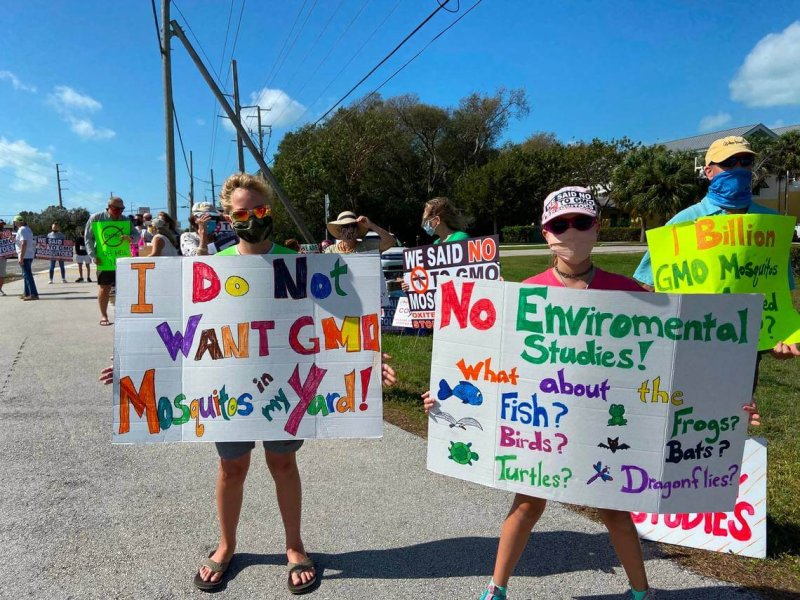Oxitec will release half a billion gene-hacked mosquitoes, engineered to kill off the local bloodsucker population along a lengthy swathe of the Florida Keys.
Breeding and unleashing clouds of genetically engineered bugs sounds like science fiction, but it’s already happening. Locally, some love the idea and others hate it — a fight which has turned ugly, with some residents even threatening to destroy Oxitec’s equipment.
Supporters say it’s a new way to rid the area of annoying, disease-spreading mosquitoes. But opponents are furious about what they describe as a biotech company coming in and strongarming their community into serving as a petri dish for a poorly vetted gene-hacking experiment.
Those conclusions were vigorously contested by Oxitec, which pushed for a retraction. The journal has since slapped an Expression of Concern over some of its findings that still remains unaddressed.































